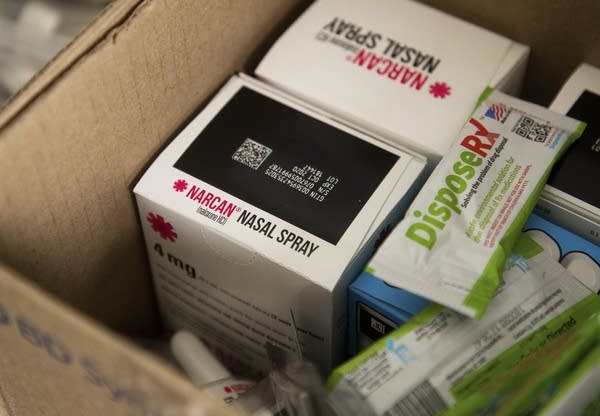A Minneapolis community group's response to the rise in fentanyl
A Narcan trainer from the Indigenous Peoples Task Force shares her on-the-ground perspective

Boxes of Narcan await distribution in Duluth, Minn. The Indigenous Peoples Task Forces distributes Narcan kits to prepare community members to respond to any potential overdoses.
Derek Montgomery for MPR News 2020
Go Deeper.
Create an account or log in to save stories.
Like this?
Thanks for liking this story! We have added it to a list of your favorite stories.


